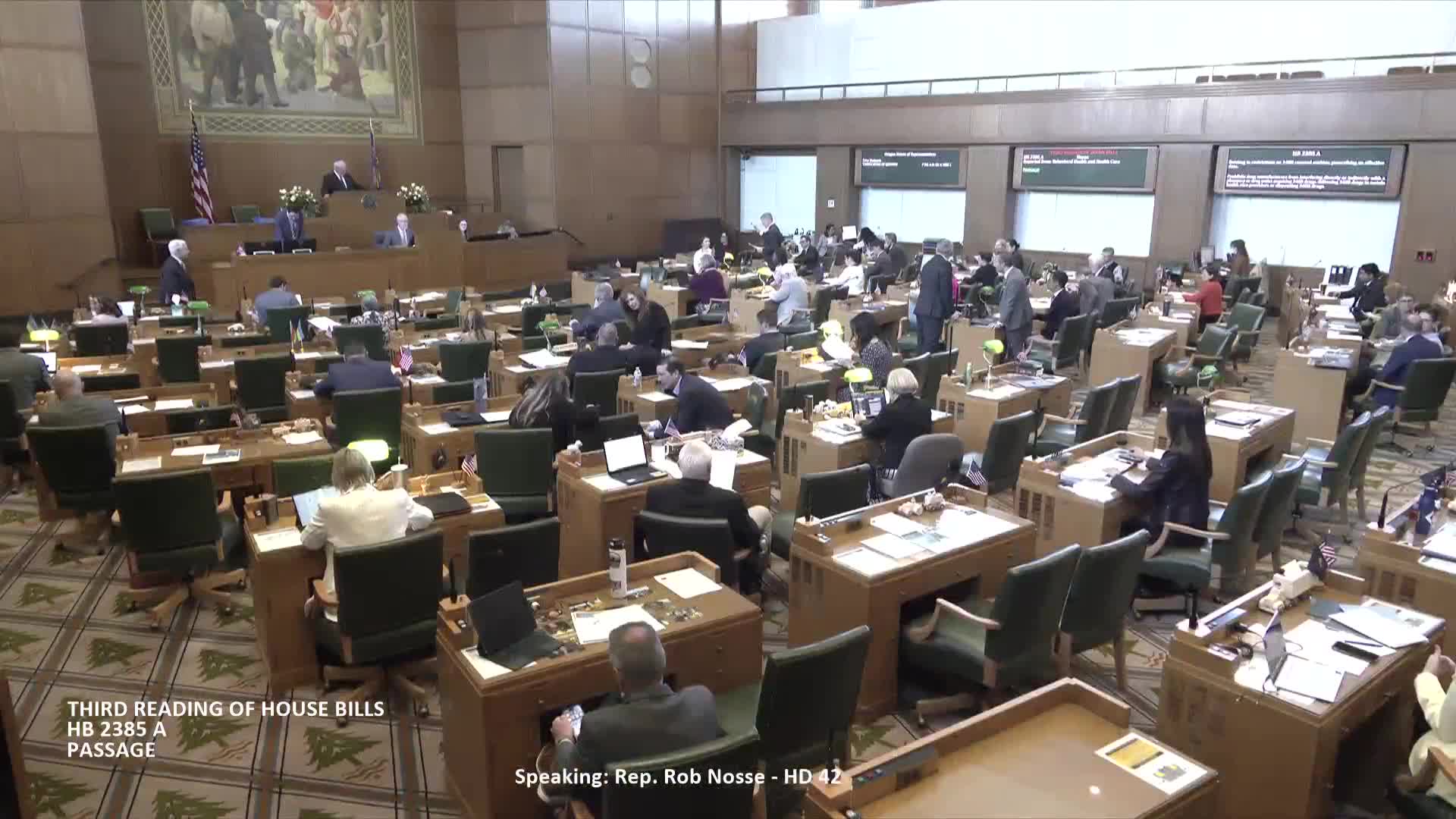Article not found
This article is no longer available. But don't worry—we've gathered other articles that discuss the same topic.
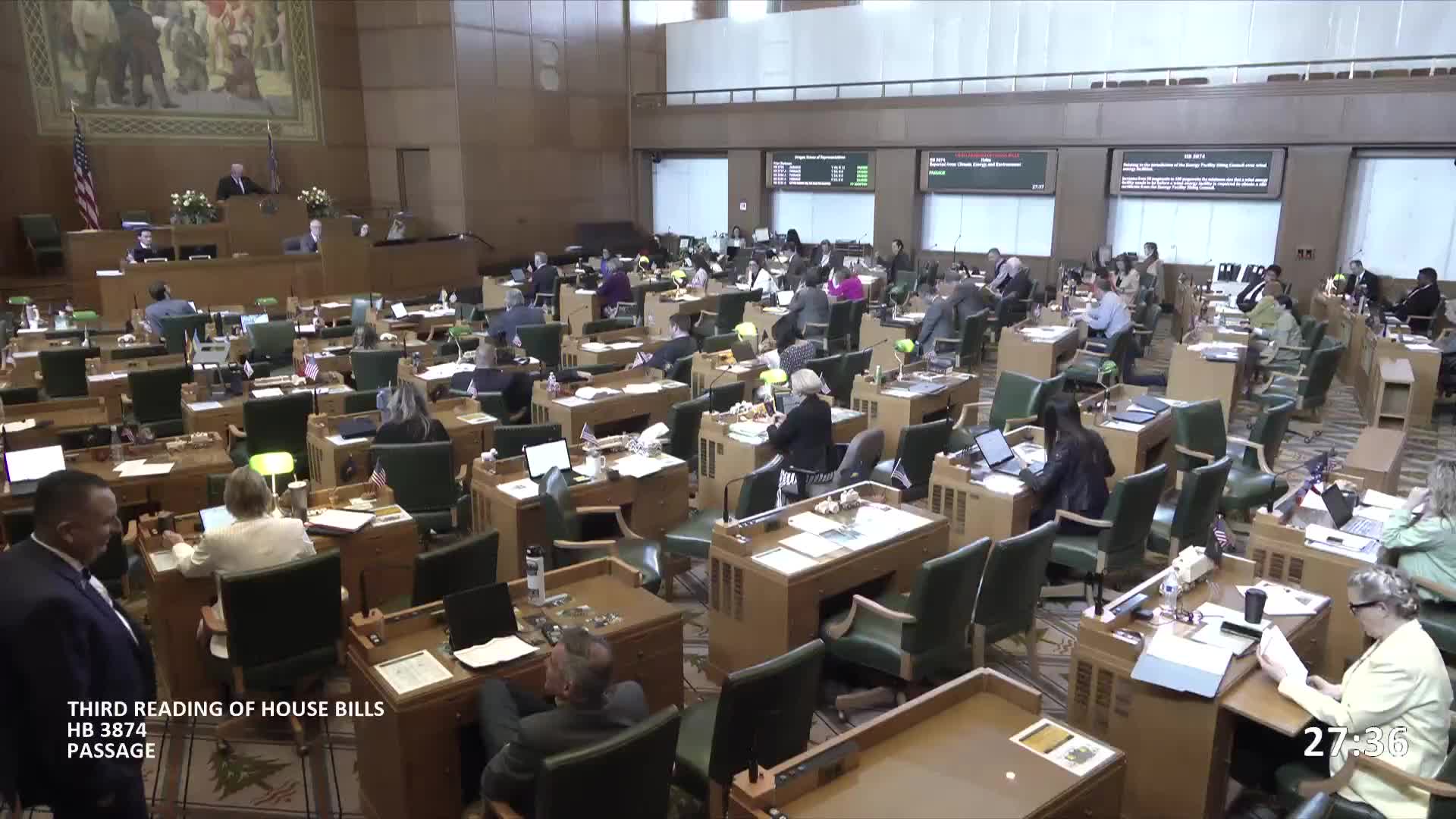
House approves art-therapy licensure and Medicaid reimbursement pathway
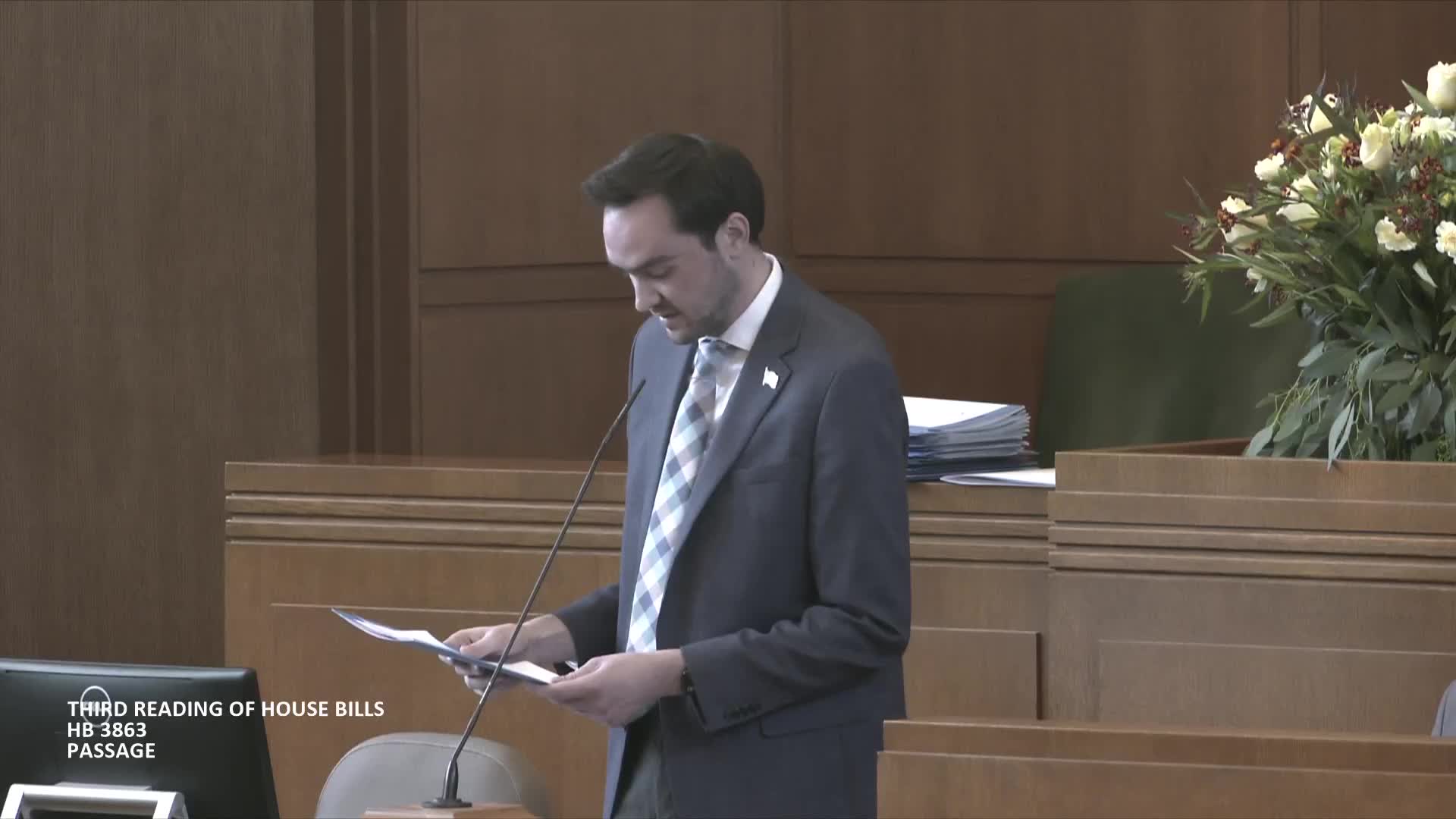
House raises county authority for small wind projects, shifting some siting decisions from state council
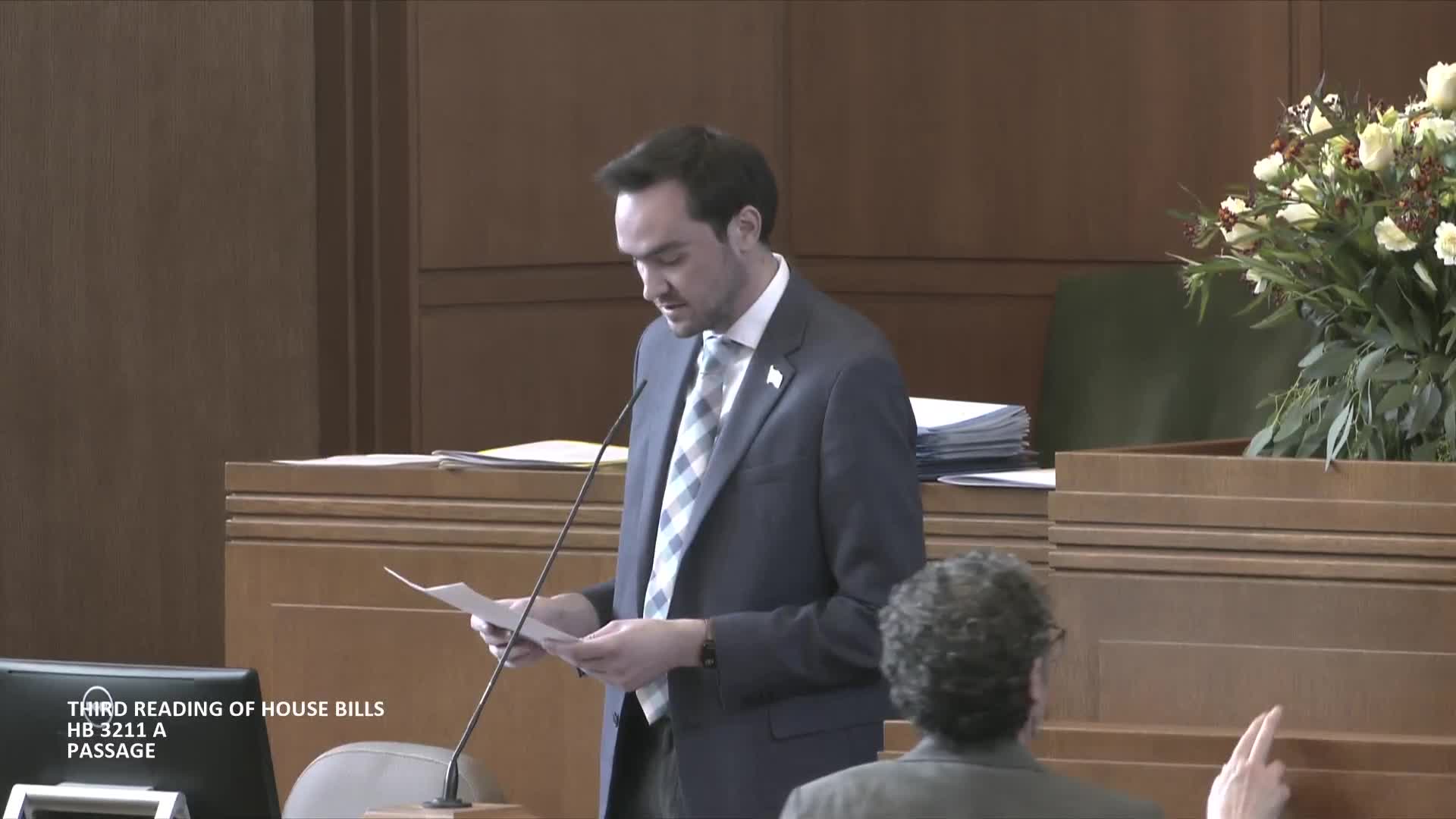
House approves voluntary non-opioid directive allowing patients to refuse opioid treatment in advance
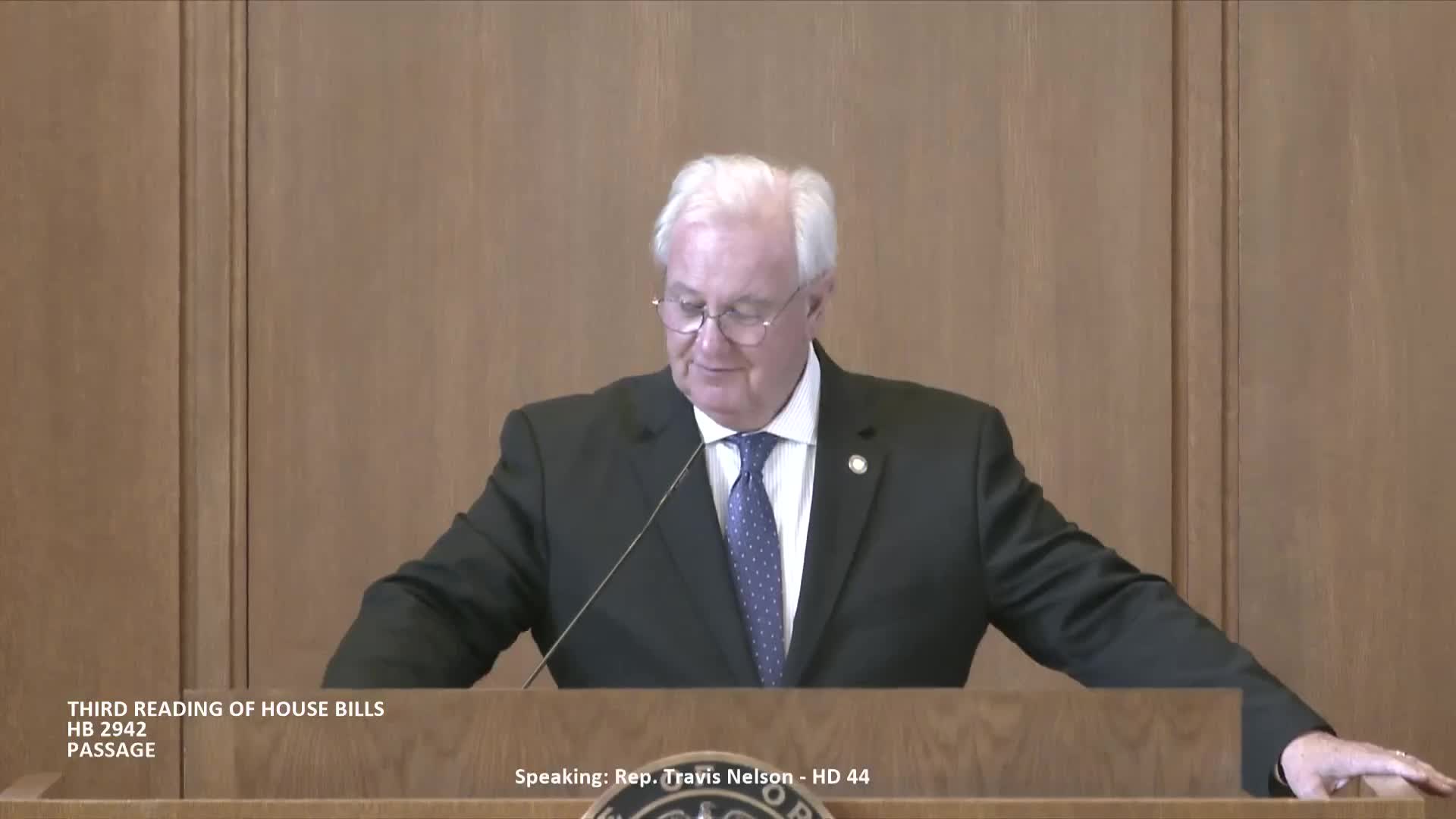
House votes to require Medicaid reimbursement for pharmacists providing PrEP and PEP
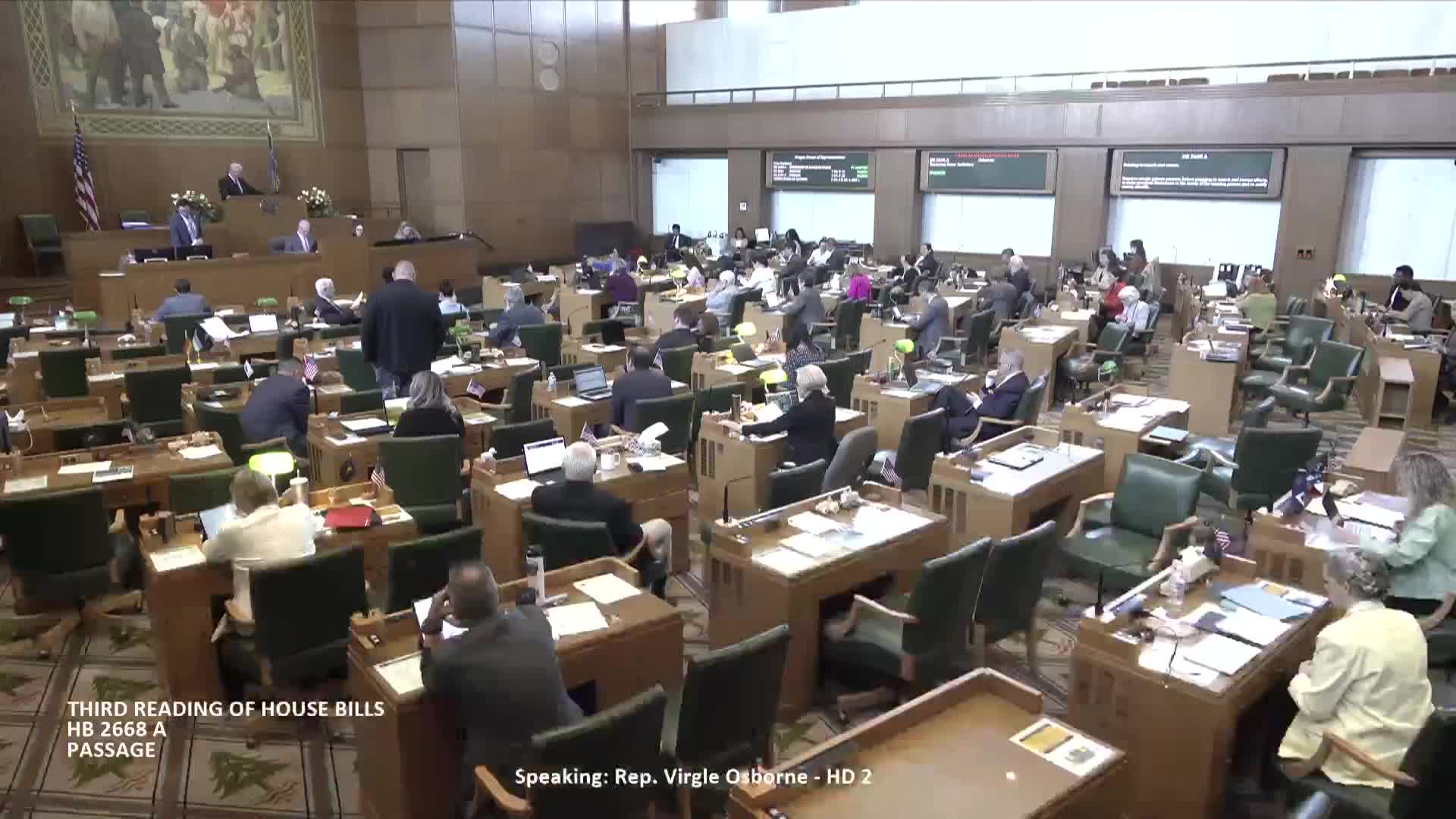
House approves measure requiring private search teams to coordinate with sheriffs
